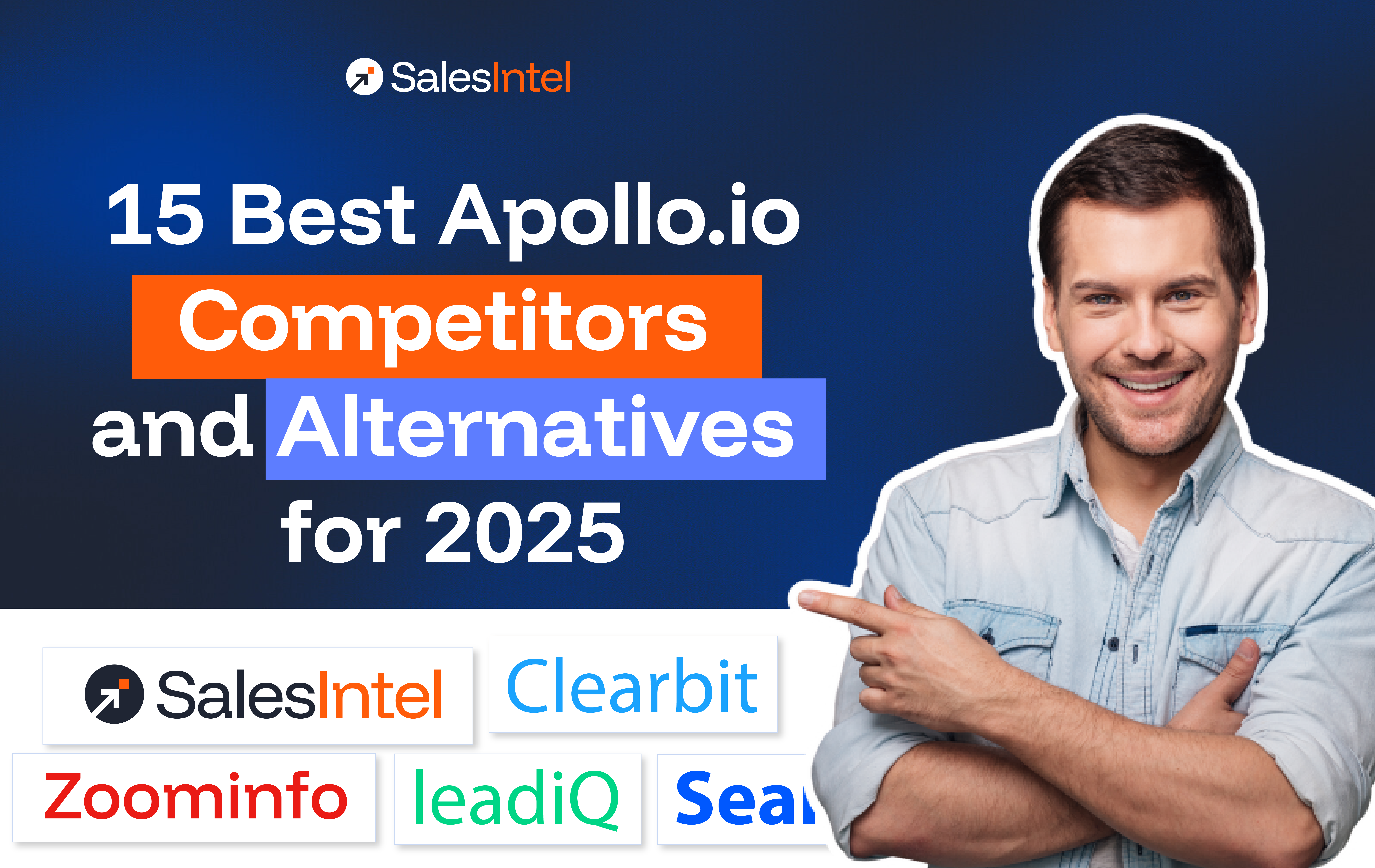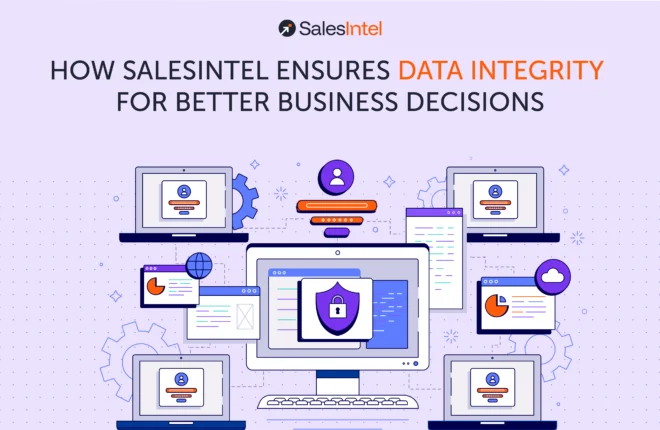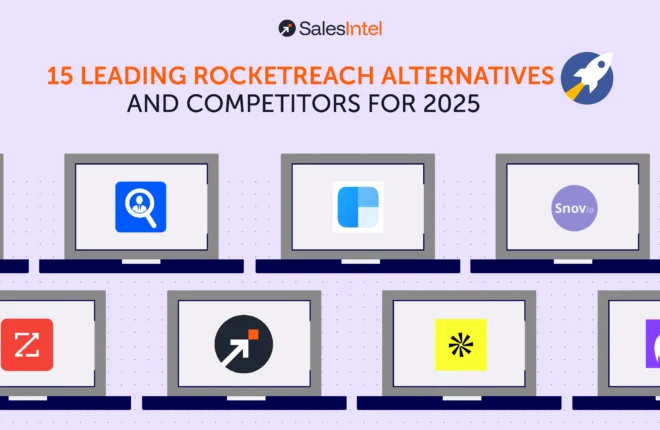In our June webinar, Is Your Data Provider Hindering or Supercharging Your Revenue Growth? Will Fuentes and Elizabeth Walter shared buyers’ top mistakes when selecting a B2B data provider.

Fuentes is the co-founder of Maestro Group. Maestro Group leverages behavioral and industrial-organizational psychology to teach salespeople how to become better professionals. Specifically, Maestro Group focuses on the skill of asking good questions and using the DRIVE information gathering framework (Decision, Resources, Impact, Velocity, Expectations) to de-risk deals. Along with professionalizing sales teams, Maestro Group has helped dozens of companies create the necessary sales momentum to reach their revenue or exit goals.

With over 25 years of experience in sales and marketing leadership, Walter served as EVP of Global Field Sales and Operations at Group 1 Software (NASDAQ: GSOF) a high-growth public software company, EVP of International Software Sales and Global Business Development at Pitney Bowes (NYSE: PBI) a Fortune 500 company, and Chief Revenue Officer at RainKing Solutions (Now ZoomInfo), a private information technology startup sold to Spectrum Equity.
Why is Your Data Provider Important?
You need an accurate data provider for effective prospecting, audience segmentation, and CRM ROI.
Any data provider can give you a big list of names for your sales team to go after, but if that data is low quality and the provider lacks a support system, you’re going to upset your team. If you want your team to succeed they need the best tools.
Fuentes shared that he encounters sales teams “still using old data that sucks like lists from pre-Covid conferences.” If your team has to double-check or search for every piece of data, they’re losing time they could spend selling and making money.
Also, having a good data provider guarantees successful audience segmentation. Fuentes said, “I have people that brag to me about having 300,000 names to go after. How are you going to reach so many people? It’s impossible.”
Instead, you need to be able to realistically segment your audience into the best possible audience for you to go after. Your sales team would prefer 1,000 accurate contacts who are all possible buyers.
Walter emphasized that “your data is the lifeblood of your CRM. Your data needs to be usable by anyone in your organization. If your data is wrong in your CRM, new employees won’t be able to work effectively. You also ruin all the investments relying on your CRM data such as your marketing outreach tools.”
What to Look for in a Data Provider?
You need a good data provider to keep your sales team happy, find your ideal audience, and keep your CRM useful. But, how do you know which provider is the right fit for you?
Consider coverage, quality, data types, and accessibility.
Coverage
The default assumption is that more is better. Why pay for 5,000 contacts when you can get 10,000 for the same price? But, you don’t know how many contacts are relevant to your business. If those 10,000 contacts are in a state you don’t service then they’re useless.
Check if the data provider has data for your specific niche. Some target audiences are particularly difficult to find data on. If your data provider has a gap in their coverage, find out if they can get the data you need. Can they make your data request a priority, or will you just have to wait for them to get around to it?
Quality
For data quality, everyone likes to say they have the best data. So instead, find out how their data is collected and refreshed. You should know the full verification process. The more detailed the data collection and verification process is the better the data quality should be. Real humans should be involved in double-checking.
You should also know what the expectations for the data quality are. No database is 100% accurate. Data decay happens every day as people move and change positions. Make sure you know what level of quality you should expect and if there is a process for reporting inaccurate data for correction.
Data Types
Your data provider options likely have more than only contact data. Other B2B data types can accelerate sales development.
For example, firmographic data points help segment your audience based on company details. Technographic data is essential if your product requires an organization to already have a certain piece of software in their tech stack. Intent data lets your team find companies already in the market for your product or services. And, data on recent company news or funding can help sales reps personalize their outreach.
Make sure you understand which features matter to you and how much they cost from your data provider candidates. They likely have different pricing structures. You also want to check what the provider’s support and education systems are. Can you have personal training? Do you have access to videos and guides? Extra data features are useless if no one on your team knows about them or how to use them effectively.
Accessibility
Your B2B data software should be easy to use and fit your tech stack. See how easily you can import or export data as needed. How fast can a sales rep make and pull a lead list? Some tools are fast at finding a contact but can’t easily export into your CRM or help you find similar contacts.
Also, Fuentes said he checks with all his clients to make sure they can afford the software in the future. “Will the software be more expensive next year? If business growth slows, will it still be affordable for you?”
Finally, make sure you know what happens to the data if your contract ends. Some data providers require you to remove all their data from your system if you end the contract. You don’t want your data to be held hostage.
Favorite Questions to Ask from the Experts
Fuentes and Walter both shared their favorite question to ask a data provider to see if they’re a good fit.
Fuentes shared that his favorite question is:
“What kind of customer service and support do I get?”
According to Fuentes, “I don’t want my client calling me when I’m gone. I want to know I’ve left them with a partner that will take care of them.” Support should also include training and helping sales teams know how to use the database.
Walter followed up. “Training is important because one of the biggest concerns for leadership is the amount of shelfware they buy. Maybe the team never adopted the tool, or there is no process for training new hires, and it ends up with unused seats. Check that your provider has resources to help you make the most of their tool.”
Walter’s favorite question to ask is:
“What is your data collection methodology?”
“Many companies just scrape the web and rationalize it to clients. If you have tons of data doesn’t that make it better? But no, more data does not equal better data. There is no substitute for understanding the data quality control methods. Machine gathered data only will only maybe get to 70% accuracy. There is no substitute for human verification of calling the person and checking. Machines can’t put high-quality data together alone,” said Walter.
You want to make sure data is being refreshed every 90 days. Say a provider has 22,000 contacts for a company and another has 7,000. Which do you want? Well, you check and see the company only has 9,000 employees. At minimum 13,000 of those 22,000 contacts are out of date and useless. Likely, the 7,000 contact option has more useful data.
“Some data providers are like the Hotel California. You can enter but never leave. Their data is never cleaned,” Walter said.
The last piece of advice Fuentes and Walter shared was to commit to your choice of a data provider. Sign up for 2 years to motivate yourself to learn and use the system. If you only sign up for 6 months and there’s a bump in the road at month 3, you’re not going to bother fixing it. You’re just gonna switch in 3 months. This pattern can repeat over and over while your sales team misses their quota.
Make a big commitment. You’ll want to learn and work things out with your provider. By taking the time to work through the hiccups, you’ll have the data you need to hit your goals in the long term, and you’ll see greater success with your B2B provider.
On-Demand Recording
Watch the full recording of Elizabeth and Will’s session:




